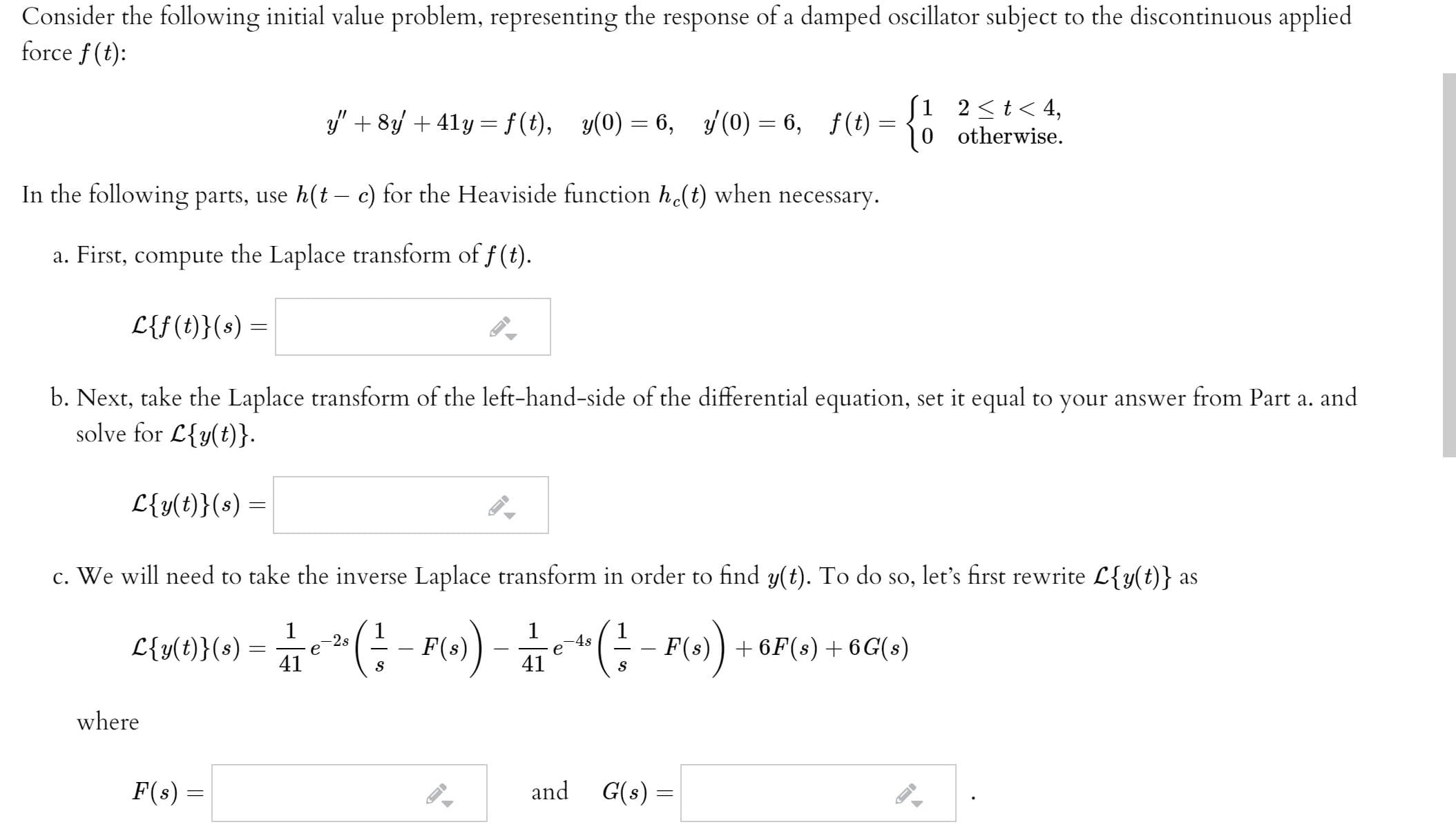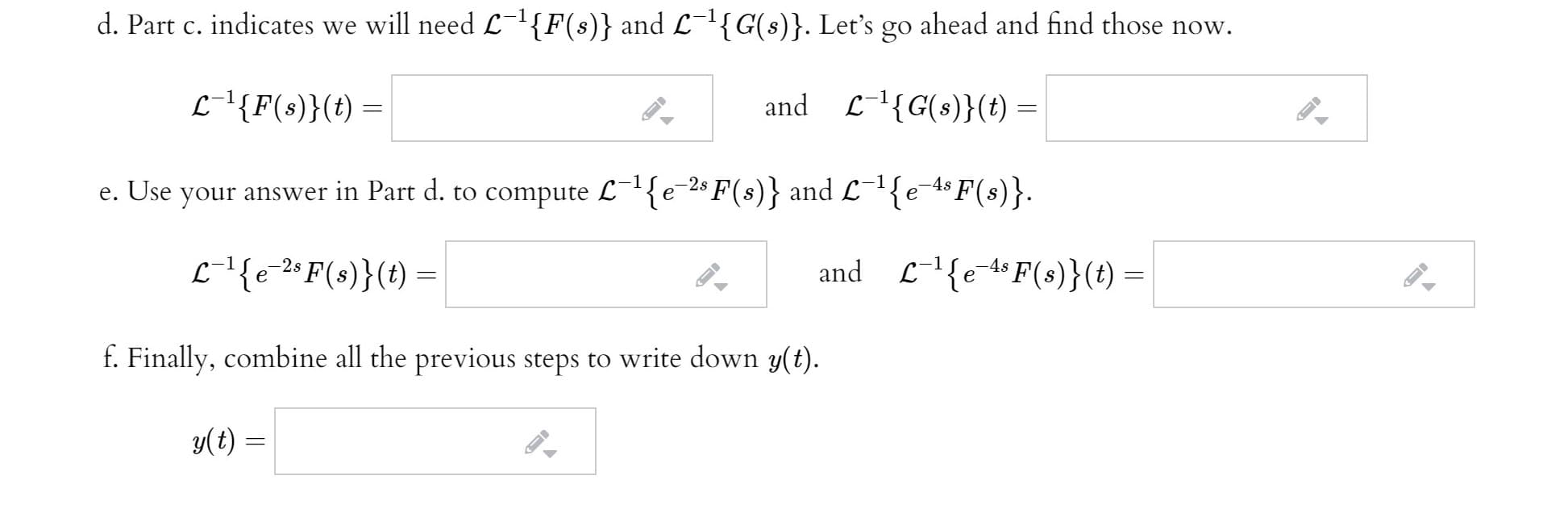Consider the following initial value problem, representing the response of a damped oscillator subject to the discontinuous applied force f (t): S1 2
Consider the following initial value problem, representing the response of a damped oscillator subject to the discontinuous applied force f (t): S1 2
Advanced Engineering Mathematics
10th Edition
ISBN:9780470458365
Author:Erwin Kreyszig
Publisher:Erwin Kreyszig
Chapter2: Second-order Linear Odes
Section: Chapter Questions
Problem 1RQ
Related questions
Question

Transcribed Image Text:Consider the following initial value problem, representing the response of a damped oscillator subject to the discontinuous applied
force f (t):
S1 2<t< 4,
0 otherwise.
3y" + 8 + 41y = f(t), y(0) = 6, (0) = 6, f(t) =
In the following parts, use h(t c) for the Heaviside function h(t) when necessary.
a. First, compute the Laplace transform of f (t).
L{f(t)}(s) =
b. Next, take the Laplace transform of the left-hand-side of the differential equation, set it equal to your answer from Part a. and
solve for L{y(t)}.
L{y(t)}(s) =
c. We will need to take the inverse Laplace transform in order to find y(t). To do so, let's first rewrite L{y(t)} as
*(;- P() -(:- P) + 6P(0) + 6G(»)
-2s
-4s
L{y(t)}(s) =
41
F(s)
41
where
F(s) =
and G(s) =

Transcribed Image Text:d. Part c. indicates we will need L{F(s)} and L{G(s)}. Let's go ahead and find those now.
-1
L-'{F(s)}(t) =
and L-{G(s)}(t) =
e. Use
your answer in Part d. to compute L¯'{e-2$ F(s)} and L¬1{e-4$ F(s)}.
L-l{e-"F(s)}(t) =
and
L{e-*F(s)}(t) =
f. Finally, combine all the previous steps to write down y(t).
y(t) =
Expert Solution
This question has been solved!
Explore an expertly crafted, step-by-step solution for a thorough understanding of key concepts.
This is a popular solution!
Trending now
This is a popular solution!
Step by step
Solved in 4 steps with 5 images

Recommended textbooks for you

Advanced Engineering Mathematics
Advanced Math
ISBN:
9780470458365
Author:
Erwin Kreyszig
Publisher:
Wiley, John & Sons, Incorporated

Numerical Methods for Engineers
Advanced Math
ISBN:
9780073397924
Author:
Steven C. Chapra Dr., Raymond P. Canale
Publisher:
McGraw-Hill Education

Introductory Mathematics for Engineering Applicat…
Advanced Math
ISBN:
9781118141809
Author:
Nathan Klingbeil
Publisher:
WILEY

Advanced Engineering Mathematics
Advanced Math
ISBN:
9780470458365
Author:
Erwin Kreyszig
Publisher:
Wiley, John & Sons, Incorporated

Numerical Methods for Engineers
Advanced Math
ISBN:
9780073397924
Author:
Steven C. Chapra Dr., Raymond P. Canale
Publisher:
McGraw-Hill Education

Introductory Mathematics for Engineering Applicat…
Advanced Math
ISBN:
9781118141809
Author:
Nathan Klingbeil
Publisher:
WILEY

Mathematics For Machine Technology
Advanced Math
ISBN:
9781337798310
Author:
Peterson, John.
Publisher:
Cengage Learning,

